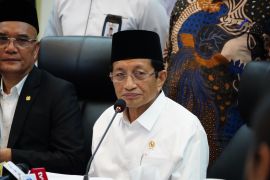The tax amnesty program started in July 2016 to last until the end of this month.
Yustinus Prastowo from the Center for Indonesia Taxation Analysis (CITA) said the government find the factors behind the low interest of tax payers taking part in the tax amnesty program to repatriate their assets from abroad , and take steps for fundamental and significant improvement.
"In repatriation, realization is far below target," Yustinus said in a statement available to ANTARA here on Monday.
A businessman has said it was not easy to repatriate assets from abroad to the country as not all of the assets are in deposits. Some are in shares even in property.
According to data issued last weekend by the Taxation Directorate General , assets declared under the program reached Rp4,625 trillion including Rp146 trillion in repatriation, Rp1,026 trillion assets still parked abroad and Rp3,454 trillion in the country.
The target for repatriation is set at Rp1,000 trillion under the tax amnesty program. Many rich Indonesians are believed to have parked large funds abroad either for commercial gain or to evade tax.
Yustinus said the assets of Indonesians abroad already declared are potential source of investment in the country after the end of the tax amnesty program.
"We need better, concrete and measured coordination, integration and synergy in the implementation of the program with active role of regional administrations," he said.
Meanwhile, redemption fund under the tax amnesty program reached Rp122 trillion, against the target of Rp165 trillion until the end of the program.
Despite the shortfall, Yustinus appreciated the implementation of the program as it would end with a number of important achievements.
"In general the program is a success especially on improving the peoples tax compliance. Assets declaration after long hidden would provide potential source of tax revenues and the redemption fund would help increase tax revenues to contribute to the 2016 state budget," he said.
Indonesia has been said to be the most successful among countries in the world ever implementing tax amnesty program.
The government has said it would adopt a firmer policy against tax evasion after the tax amnesty program.
Finance Minister Sri Mulyani Indrawati has said by May, 2017 the government would finish drafting regulations to back up implementation of agreement on the Automatic Exchange of Information (AEOI) under which all bank accounts in the world are accessible for investigation of taxable assets.
"All regulations on access to information have to be ready by May, this year. This means there would be no more banking secrecy in Indonesia," Sri Mulyani has said.
The minister said the era of openness of bank data for the sake of transparency in taxation will soon be in place and Indonesia has been committed to taking part in data exchange among nations in 2018.
For that purpose, law regulations in the form of Government Regulations in Lieu of Law (Perppu) would be issued to back up the process of tax reform, as the present Laws have not allowed transparency in banking data, she said.
Currently data exchange is still blocked by the Banking Law, Sharia Banking Law, Capital Market Law or Insurance Law, which have confidential elements that could not be penetrated automatically.(*)
Editor: Heru Purwanto
Copyright © ANTARA 2017











